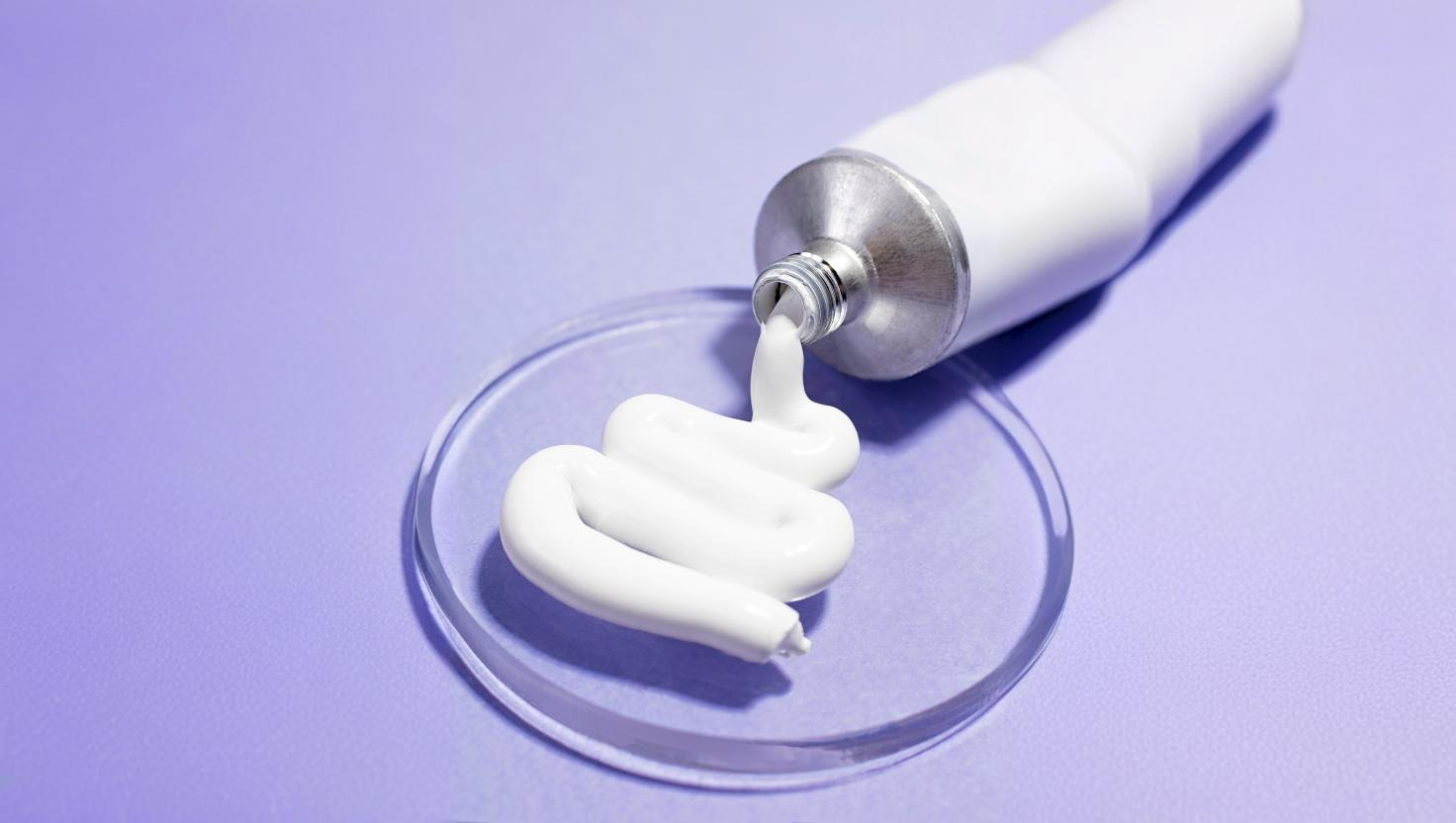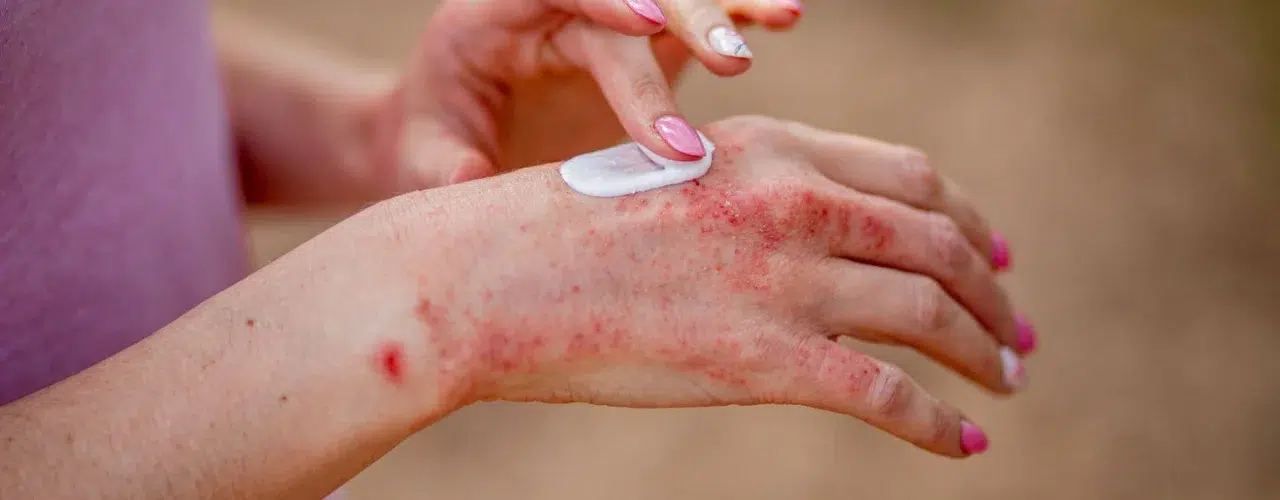Betaderm Cream Uses: Topical Betamethasone Dipropionate

When it comes to managing skin conditions like eczema, dermatitis, and allergic reactions, Betaderm Cream is a widely used treatment. This topical medication contains betamethasone, a medium-strength corticosteroid that helps reduce inflammation, redness, and itching. It is often prescribed for various inflammatory skin conditions and bacterial infections when combined with neomycin sulfate, an antibiotic.
Understanding the uses, benefits, and precautions of Betaderm Cream can help ensure safe and effective application. In this article, we explore the key benefits of Betaderm Cream, its correct usage, potential side effects, and pricing.
What is Betaderm Cream?
Betaderm Cream is a prescription corticosteroid cream that contains betamethasone dipropionate, which works by suppressing inflammation and immune responses in the skin. Some formulations also include neomycin sulfate, which helps prevent bacterial infections.
It is primarily used for treating inflammatory skin conditions such as:
- Eczema
- Dermatitis
- Skin rashes
- Allergic reactions
- Psoriasis
- Bacterial skin infections
Since it is a potent steroid, this cream should only be used under medical supervision and for a limited duration.
How to Use Betaderm Cream
To ensure optimal results, follow these guidelines for application:
- Clean the Affected Area – Wash and dry your hands before applying the cream. Clean and dry the area where the cream will be applied.
- Apply a Thin Layer – Gently rub a thin layer onto the affected area once or twice daily, or as prescribed by your doctor.
- Avoid Sensitive Areas – Do not apply near the eyes, mouth, or open wounds. It is also not recommended for use on the face, groin, or underarms unless prescribed by a healthcare professional.
- Do Not Cover the Area – Unless directed by your doctor, avoid bandaging or wrapping the treated skin.
- Wash Hands After Application – If the cream is not being used to treat hands, wash your hands thoroughly after use.
Important: This cream should only be used for the condition it was prescribed for and should not be used longer than directed.
Betaderm Cream Uses and Benefits
Betaderm Cream provides effective relief for various inflammatory skin conditions:
1. Eczema and Dermatitis
Betaderm is commonly prescribed for managing eczema and dermatitis, helping to reduce itching, redness, and swelling. However, it is not a long-term solution and should be used sparingly.
2. Skin Infections with Inflammation
When combined with neomycin sulfate, Betaderm Cream can treat bacterial skin infections that occur alongside inflammation, preventing secondary infections.
3. Allergic Skin Reactions
For individuals suffering from contact dermatitis or other allergic skin reactions, Betaderm can provide quick relief by suppressing the immune response responsible for inflammation.
4. Psoriasis Management
Psoriasis patients can use Betaderm Cream to reduce scaling, redness, and irritation in affected areas. However, prolonged use may lead to skin thinning, so it should be used with caution.

Precautions and When Not to Use Betaderm Cream
There are certain conditions where Betaderm Cream should not be used:
- Do not use if allergic to betamethasone, neomycin, or any other ingredients.
- Avoid use on open wounds or infected skin without a doctor’s guidance.
- Not recommended for acne, rosacea, or perioral dermatitis.
- Pregnancy & Breastfeeding: Consult your doctor before use, as corticosteroids can be absorbed into the bloodstream.
Possible Side Effects
Like all medications, Betaderm Cream may cause side effects in some users. The most common side effects include:
- Skin irritation (redness, burning, itching, dryness)
- Increased hair growth in treated areas
- Skin thinning or discoloration with prolonged use
- Potential worsening of untreated skin infections
In rare cases, excessive use of corticosteroids can lead to adrenal suppression, which may cause fatigue, weight loss, or hormonal imbalances.
If any severe reactions occur, discontinue use and seek medical advice immediately.
Missed Dose and Overdose
Missed Dose: If you forget to apply a dose, apply it as soon as you remember. If it is close to your next dose, skip the missed one and continue as usual.
Overdose: Overuse of corticosteroids can cause skin thinning, adrenal suppression, and systemic effects. In case of accidental ingestion, seek immediate medical attention.
Storage and Disposal
To maintain the effectiveness of Betaderm Cream:
- Store at room temperature (below 25°C).
- Keep it away from direct heat and sunlight.
- Do not freeze.
- Keep out of reach of children.
- Properly discard expired or unused medication following pharmacist guidance.
Conclusion
Betaderm Cream is a powerful topical medication that provides relief from a variety of inflammatory skin conditions. When used correctly, it can help reduce redness, swelling, and itching, making it a valuable treatment option for skin issues like eczema, dermatitis, and allergic reactions. However, long-term use should be avoided due to potential side effects.
If you are considering using Betaderm Cream, always consult your doctor for proper guidance and application instructions.




